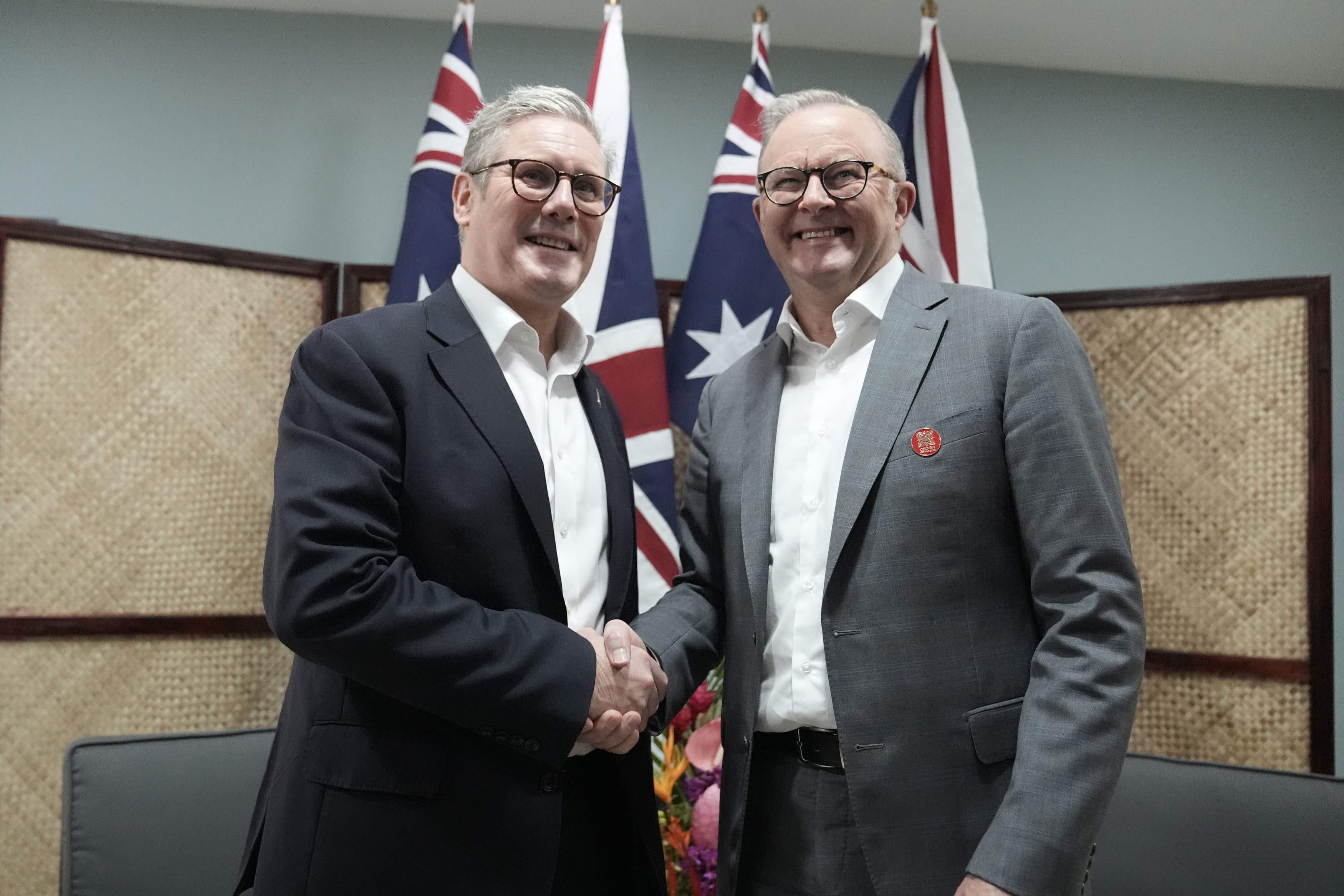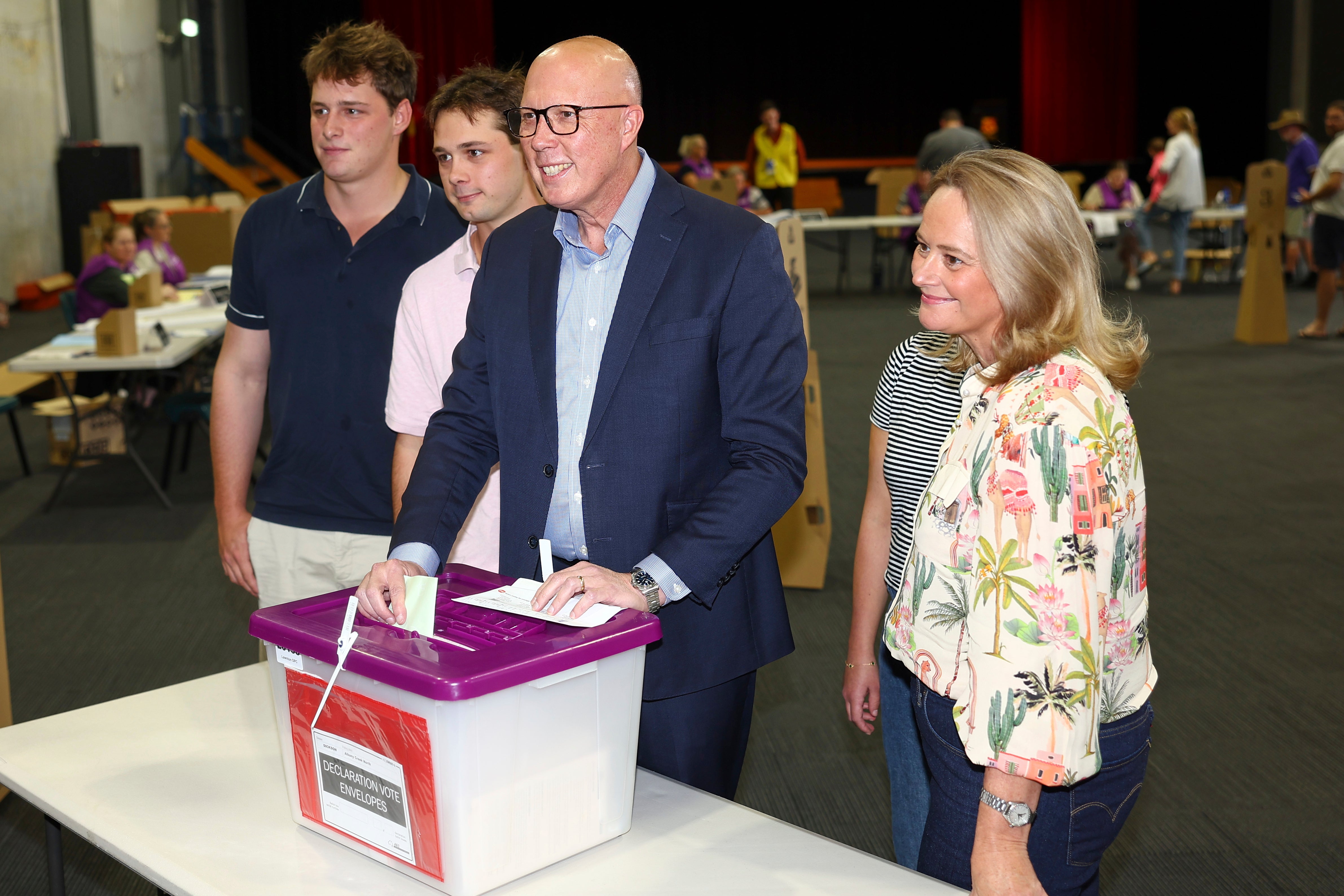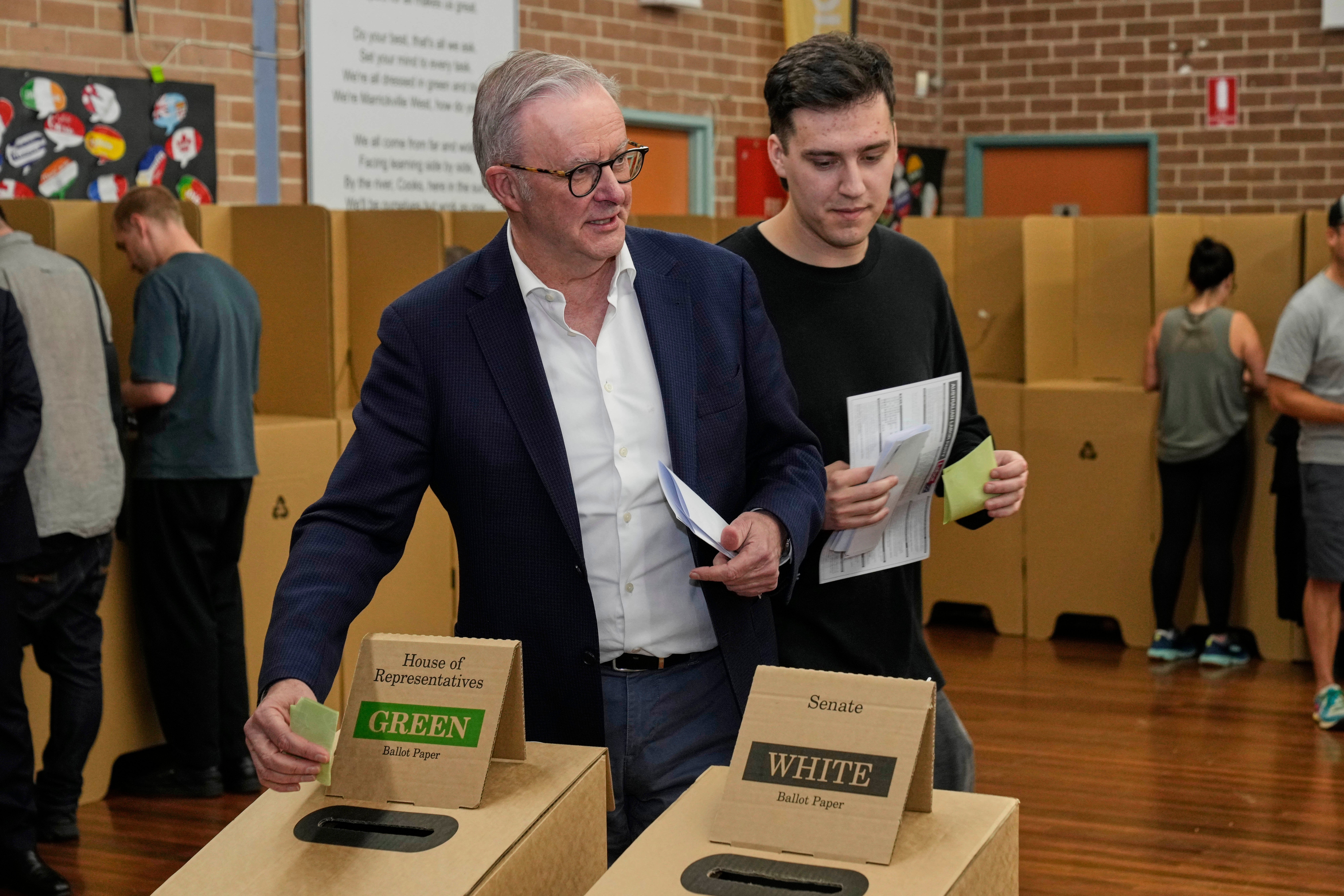ARTICLE AD BOX
Australia's government will prioritise dealing with the "dark shadow" of the US-China trade war following its resounding reelection victory, treasurer Jim Chalmers said on Sunday, after a campaign that highlighted concerns over US trade policy and the global economy.
Anthony Albanese claimed victory as the first Australian prime minister to clinch a second consecutive term in 21 years on Saturday and suggested his government had increased its majority by not modelling itself on US president Donald Trump’s administration.
“Australians have chosen to face global challenges the Australian way, looking after each other while building for the future,” Mr Albanese told supporters in a victory speech in Sydney.
“We do not need to beg or borrow or copy from anywhere else. We do not seek our inspiration overseas. We find it right here in our values and in our people,” he added.
"The immediate focus is on global economic uncertainty, US and China, and what it means for us," Mr Chalmers told the Australian Broadcasting Corp.
"What's happening, particularly between the US and China, does cast a dark shadow over the global economy ... We need to have the ability, and we will have the ability, to manage that uncertainty."

Former conservative member of parliament Keith Wolahan, who conceded his seat at the election, told the ABC his party had misread the public mood.
"It was clear that our party has an issue in urban Australia, which is where most people live," he said.
"We need to really dig deep and think about who we are and who we fight for and who makes up Australia," Wolahan added.
Mr Albanese’s centre-left Labor Party had branded Albanese’s rival Peter Dutton, the opposition leader, “DOGE-y Dutton” and accused his conservative Liberal Party of mimicking Mr Trump and his Department of Government Efficiency.
Mr Dutton had earlier conceded his alliance of conservative parties had been defeated at the election and that he had lost his own parliamentary seat that he had held for 24 years.
Mr Dutton’s plight parallels that of Canada’s opposition leader, Pierre Poilievre, who lost his seat after Mr Trump declared economic war on the US neighbour to the north. Mr Poilievre had previously been regarded as a shoo-in to become Canada’s next prime minister and shepherd his Conservative Party back into power for the first time in a decade.
Analysts argue that mirroring Mr Trump switched from a political positive for Australian conservatives to a negative after Mr Trump imposed global tariffs.
Trumpet of Patriots, a minor party inspired by Mr Trump policies with an advertising budget funded by mining magnate Clive Palmer that eclipsed the major parties, attracted only 2 per cent of the vote.
Zareh Ghazarian, a lecturer in politics at Monash University, in Melbourne, questioned the significance of the “DOGE-y Dutton” label in the election result.
“We won’t know. But I’m not sure it had a massive impact,” Mr Ghazarian said. “It is a huge win for Labor and it’s a massive rebuke for the Liberal Party.”
US Secretary of State Marco Rubio congratulated Mr Albanese on his election to a second three-year term.
“Australia is a valued ally, partner, and friend of the United States. Our shared values and democratic traditions provide the bedrock for an enduring alliance and for the deep ties between our peoples,” Mr Rubio said in a statement.
“The United States looks forward to deepening its relationship with Australia to advance our common interests and promote freedom and stability in the Indo-Pacific and globally,” he added.

British Prime Minister Keir Starmer, a fellow centre-left leader, congratulated Mr Albanese on his victory.
“The UK and Australia are as close as ever – which goes to show that long-distance friendships can be the strongest,” Mr Starmer said. “I know that we will continue to work together on our shared ambitions, including on trade, investment and energy, working towards a better life for working people in the UK and Australia.”
Labor had held a narrow majority of 78 seats in the 151-seat house House of Representatives, the lower chamber where parties form governments.
Australian governments are usually elected for at least a second term, but are expected to lose seats at the second election. But Labor is on track to increase its majority in its second term.
Energy policy and inflation have been major issues in the campaign, with both sides agreeing the country faces a cost of living crisis.
The Liberal Party blamed government waste for fuelling inflation and increasing interest rates, and has pledged to ax more than one in five public service jobs to reduce government spending.
While both said the country should reach net-zero greenhouse gas emissions by 2050, Mr Dutton argues that relying on nuclear power instead of renewable energy sources such as solar and wind turbines would deliver less expensive electricity.
Labor argued Mr Dutton’s administration would slash services to pay for its ambitions to build seven government-funded nuclear generators. Australia currently has no nuclear power.
Opposition senator Jacinta Nampijnpa Price would have been responsible for cutting 41,000 public service jobs in Mr Dutton’s administration. She attracted media attention last month when she told supporters her government would “make Australia great again”.

The election took place against a backdrop of what both sides of politics describe as a cost of living crisis.
Foodbank Australia, the nation’s largest food relief charity, reported 3.4 million households in the country of 27 million people experienced food insecurity last year. That meant Australians were skipping meals, eating less or worrying about running out of food before they could afford to buy more.
The central bank reduced its benchmark cash interest rate by a quarter percentage point in February to 4.1 per cent in an indication that the worst of the financial hardship had passed. The rate is widely expected to be cut again at the bank’s next board meeting on May 20, this time to encourage investment amid the international economic uncertainty generated by Trump’s tariff policies.
Opinion polls had shown Labor ahead, after trailing in the polls as recently as February to Peter Dutton’s conservative coalition.

As counting got underway, treasurer Jim Chalmers said the Labor government had been “in all sorts of trouble” at the end of 2024 but got back into the contest because of Mr Albanese’s strong campaign performance, policies that addressed concerns about the cost of living and the Trump effect.
“The economy became a positive from a negative – the interest rate cut was part of the story,” he told ABC.
The central bank cut rates in February, on the eve of the election being called, reversing course after 13 interest rate rises that had ratcheted up home mortgage repayments for households.
“The sense of the influence of American politics” had also helped, Mr Chalmers added.









 English (US) ·
English (US) ·